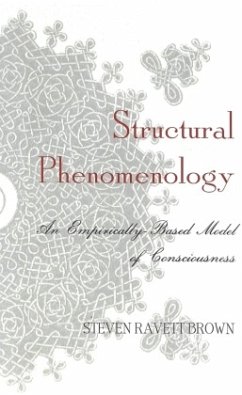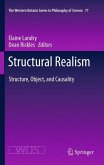This book represents a major step forward in the philosophy of mind. Steven Ravett Brown makes an important contribution to the field of naturalized phenomenology by developing a "structural phenomenology" model based on contemporary studies of gestalts and attention. This model clearly and explicitly brings scientific data to bear upon the nature of conscious experience. Synthesizing empirical data from several fields, Brown provides a phenomenological analysis of structural components of intentionality, a reconsideration of functional processes of gestalts, and a reformulation and indepth analysis of higher-order processing and the "tip of the tongue" meta-cognitive phenomenon. The unique importance of this book lies in its providing an explanatory tool that can predict as well as elucidate mental phenomena. It demands attention from all philosophers, psychologists, and neuroscientists engaged in research into the mental.
«Steven Brown's argument for a 'naturalized phenomenology' that can collaborate with the cognitive sciences is a major step forward in our attempts to bring all available resources to bear on our understanding of every aspect of mind, thought, and language.
Brown's principal contribution is to show that what he calls a 'structural phenomenology' - one that articulates the most universal characteristics of conscious and non-conscious experience - can provide significant explanations of several gestalt phenomena that are much discussed in cognitive psychology and cognitive neuroscience. The chapter in which he applies his structural phenomenology to what are known as 'tip-of-the-tongue' (TOT) phenomena is a tour-de-force, a highly original contribution that shows both a deep understanding of phenomenology and a remarkable grasp of the vast literature on empirical studies of these phenomena.» (From the Introduction by Mark Johnson)
Brown's principal contribution is to show that what he calls a 'structural phenomenology' - one that articulates the most universal characteristics of conscious and non-conscious experience - can provide significant explanations of several gestalt phenomena that are much discussed in cognitive psychology and cognitive neuroscience. The chapter in which he applies his structural phenomenology to what are known as 'tip-of-the-tongue' (TOT) phenomena is a tour-de-force, a highly original contribution that shows both a deep understanding of phenomenology and a remarkable grasp of the vast literature on empirical studies of these phenomena.» (From the Introduction by Mark Johnson)








